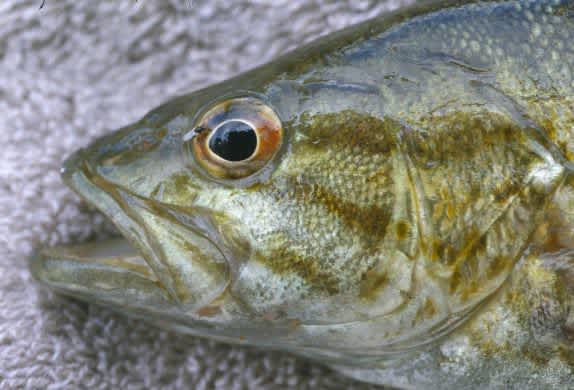Scientists Report Finding Intersex Fish in Pennsylvania
OutdoorHub Reporters 07.03.14

A new survey led by the US Geological Survey (USGS) has found intersex fish, or fish that display traits of both genders, in at least three Pennsylvania River Basins. According to the USGS, “male” specimens recovered from the Susquehanna, Delaware, and Ohio river basins have been discovered to contain immature eggs in their testes. Experts are saying that the trait may have been caused by exposure to man-made chemicals that include hormone-mimicking compounds.
“Chemical compounds associated with estrogenic endocrine disruption, in particular estrone, a natural estrogen, were also associated with the extent and severity of these effects in bass,” said fish biologist Vicki Blazer.
“The sources of estrogenic chemicals are most likely complex mixtures from both agricultural sources, such as animal wastes, pesticides and herbicides, and human sources from waste water treatment plant effluent and other sewage discharges,” she added.
Blazer and her team recently published the results of their study in the online journal Environmental Monitoring and Assessment. The researchers said that fish downstream from a wastewater treatment plant or near agricultural development are especially prone to these defects, which the fish are born with. Blazer told the Los Angeles Times that she was surprised by the number of fish affected and the severity of the defects.
“We weren’t expecting the issue to be as widespread as it was,” she said.
Local lawmakers have already responded to the troubling discovery, seeking to call more attention to water pollution and chemical waste regulation.
“We need to be conscious of the substances flowing into our water sources,” said Virginia Representative Jim Moran (D-VA). “Our rivers and the wildlife living there are among our country’s most precious resources, it’s a shame to see them deteriorated at the hands of irresponsible human behavior.”
Moran reminded lawmakers that America’s rivers and wildlife that depend on them are among the nation’s most treasured resources, and they can be quickly destroyed by irresponsible behavior.
It is not currently known how the phenomenon will affect fish populations or how humans will be affected by either eating intersex fish or consuming contaminated water. Researchers said that upgrading treatment facilities as well as reducing the amount of chemicals leaking into the water should mitigate the problem.

